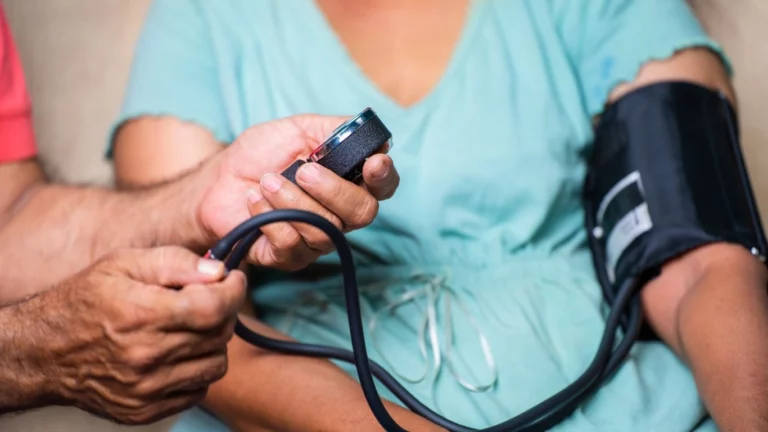Can GERD Cause Headaches? 🤔 Let’s Explore the Connection!
Introduction:
If you’ve been dealing with GERD (Gastroesophageal Reflux Disease) and headaches at the same time, you might be wondering if there’s some connection between the two. I mean, GERD messes with your stomach enough already, so can it really cause headaches too? Spoiler alert: Yeah, it can. Let’s dive into this whole thing and break it down. You’re not alone if you’ve been asking yourself this!
So, What is GERD Anyway? 🤷♂️
Alright, before we get into the whole GERD-headache mystery, let’s make sure we’re all on the same page about what GERD is. GERD happens when acid from your stomach sneaks back into your esophagus (the tube that connects your mouth to your stomach). And trust me, it’s not just annoying—it can lead to some serious discomfort, like:
- Heartburn: That burning sensation in your chest that hits after eating (it’s like a fire-breathing dragon, right?).
- Regurgitation: When you feel like your food is making an unwelcome return.
- Chronic sore throat or a cough that just won’t quit.
Now that we’ve covered the basics, let’s get to the fun part: Can GERD mess with your head too?

Can GERD Cause Headaches? 🤔
Here’s the thing: GERD doesn’t directly cause headaches. But… there are a few ways these two might be linked. Let’s talk about some of the possibilities:
1. Stress – The Silent Headache Trigger
I don’t know about you, but when I’m stressed, my whole body feels it. And if you’ve ever dealt with GERD, you know it can be so stressful. Constantly dealing with heartburn, reflux, and all that discomfort can pile on the anxiety. Stress is a major headache trigger, so it’s no surprise that when GERD flares up, your stress levels spike—and bam, there comes the headache.
2. Esophageal Spasms – They’re More Than Just Pain
So, here’s a fun fact (and by fun, I mean not fun at all): GERD can lead to esophageal spasms, which are basically involuntary muscle contractions in your esophagus. Sounds painful, right? It can cause chest pain, but weirdly, these spasms can also set off headaches. The pain from these spasms can radiate up into your head, triggering a tension headache or even a migraine for some people.

3. Medications – Oh, the Side Effects…
If you’re on meds for GERD, like proton pump inhibitors (PPIs), you might’ve noticed some side effects. I mean, these meds are great for controlling acid reflux, but they can also cause headaches as a side effect. I’ve had friends who’ve switched meds because they realized their GERD treatment was causing more headaches than it was worth. So, if you’re feeling like the meds are messing with your head, it might be time for a conversation with your doctor.
4. Vagus Nerve – The Overlooked Connection
Okay, here’s where it gets a little science-y. The vagus nerve is responsible for controlling a lot of stuff in your body, including digestion and certain head functions. GERD can irritate this nerve, and some researchers think that irritation can lead to headaches. It’s like your stomach and head are texting each other, and sometimes, the messages get crossed. Weird, right?

Troubleshooting Common Issues 🛠️
If you’re juggling both GERD and headaches, I get how frustrating it can be. But don’t worry, there are ways to make things a little easier. Let’s troubleshoot a few common issues:
1. Avoiding GERD Triggers
We all know certain foods can make GERD worse—like spicy stuff, caffeine, or citrus. But, did you know these same foods could also mess with your head? It’s a double whammy! Keeping track of what you eat and how it affects both GERD and headaches is a good move. A food diary can help you pinpoint the culprits.
2. Medication Side Effects – Talk to Your Doc
I know, I know… it’s easy to just accept that headaches are part of the deal when you’re on GERD meds. But don’t just settle. If your meds are causing headaches, tell your doctor. They might be able to tweak your treatment, either by lowering your dosage or switching you to something else that doesn’t come with the headache baggage.
3. Stress Management – Relax, It’s Gonna Be Okay
Honestly, managing stress is huge when it comes to both GERD and headaches. I’ve found that deep breathing, taking breaks, or even just a walk around the block can do wonders. It’s not always about eliminating stress (because let’s face it, life happens), but finding small ways to cope with it better.

Real-Life Examples: People Who’ve Been There 💪
Sarah’s Story: No More Double Trouble
Sarah, a 38-year-old teacher, was struggling with GERD for years, and her headaches were also constant. Every time her GERD flared up, she’d end up with a migraine. After she started avoiding GERD triggers (like caffeine and chocolate) and practiced mindfulness techniques to lower her stress, her headaches became less frequent. Both her GERD and headache symptoms calmed down—proof that lifestyle changes can make a huge difference!
James’ Journey: Switching Meds Made All the Difference
James, a 45-year-old accountant, was fed up. His GERD was under control with PPIs, but those headaches? They were relentless. After discussing it with his doctor, he switched to an H2 blocker, which didn’t come with the dreaded headache side effect. A little tweak in meds, and bam—his headaches were way less frequent.
Key Takeaways / Summary 📌
- GERD and headaches might not be best friends, but they can certainly show up at the same time.
- Stress, esophageal spasms, GERD medications, and the vagus nerve could all be playing a part in making your head hurt.
- You don’t have to just live with both. Tracking your triggers, managing stress, and talking to your doctor about meds can help you manage both conditions more effectively.
FAQs 🤔
1. Can GERD trigger migraines?
Yep! GERD doesn’t directly cause migraines, but the stress and discomfort from GERD can definitely trigger them. And, don’t forget, some GERD medications list headaches as a side effect.
2. How do I know if my headaches are linked to GERD?
Pay attention to when your headaches occur. If they come along with GERD flare-ups or after eating certain foods, there’s a chance they’re connected. Keeping a journal can help you figure this out!
3. What can I do to prevent both GERD and headaches?
Managing stress is key. Avoiding GERD triggers, staying on top of your meds, and practicing relaxation techniques can help a lot. And remember, regular exercise and enough sleep can make a difference too.
References 📚
- American College of Gastroenterology – GERD Overview
- Mayo Clinic – Stress and Headaches
- National Headache Foundation – Stress and Headaches
Disclaimer ⚠️
Hey, just a heads up: This article is here to give you some basic info, but it’s not medical advice. Always talk to your doctor before making any changes to your routine or meds.
Call to Action 🚀
If you’re dealing with both GERD and headaches, don’t let them control your life! Reach out to a healthcare professional, make some tweaks, and start feeling better. You’ve got this! 💪

Camellia Wulansari is a dedicated Medical Assistant at a local clinic and a passionate health writer at Healthusias.com. With years of hands-on experience in patient care and a deep interest in preventive medicine, she bridges the gap between clinical knowledge and accessible health information. Camellia specializes in writing about digestive health, chronic conditions like GERD and hypertension, respiratory issues, and autoimmune diseases, aiming to empower readers with practical, easy-to-understand insights. When she’s not assisting patients or writing, you’ll find her enjoying quiet mornings with coffee and a medical journal in hand—or jamming to her favorite metal band, Lamb of God.







